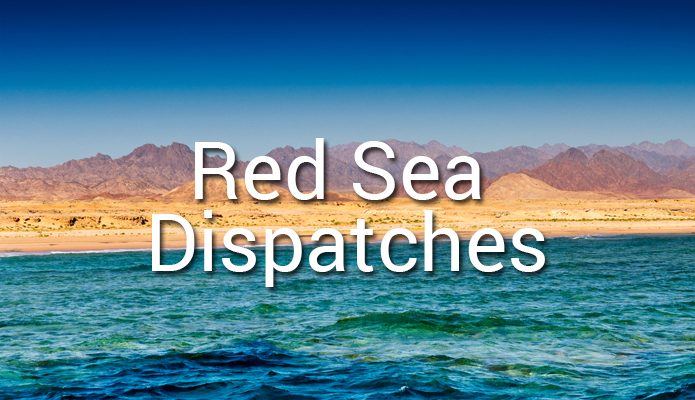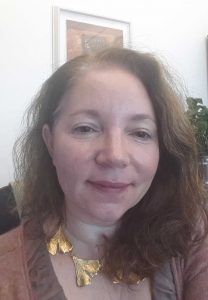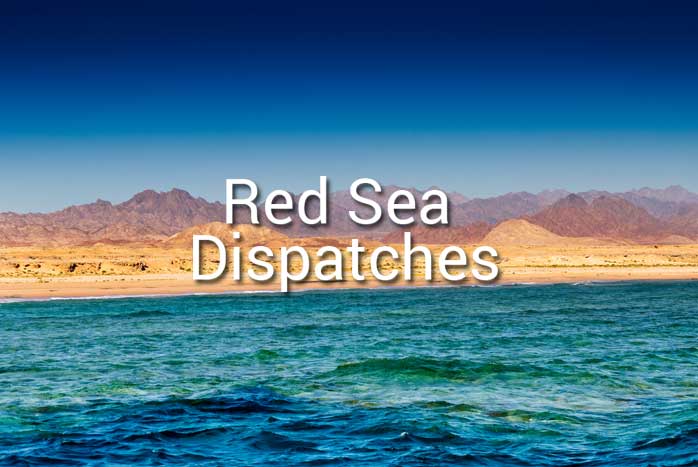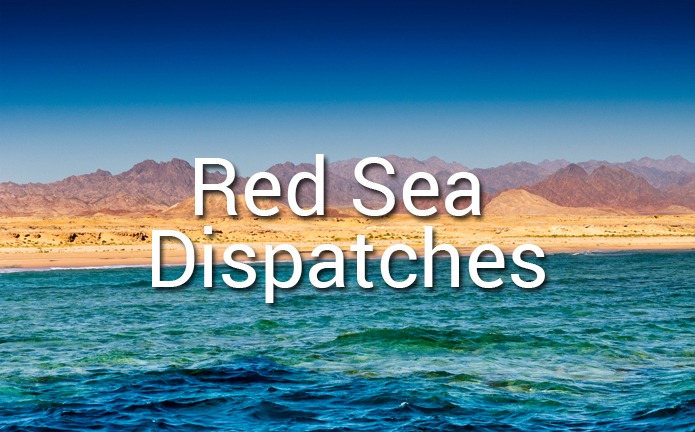Scott Adams, known for his office comic strip, Dilbert, published the non-fiction book “The Dilbert…

Institutionalizing Smarter, Better, Faster
The King Abdullah University of Science and Technology (KAUST) is a graduate research university in Saudi Arabia designed to foster the best scientific research while bridging peoples and cultures from many nations.
This year KAUST recruited Ms. Molly Tamarkin as Library Director and she arrived here in March. With 25+ years in various library leadership positions, most recently at Duke University in North Carolina, Molly is in a unique position to offer Open Shelf readers insight into life at KAUST as well as in Saudi Arabia.

In addition to Molly’s many professional accomplishments she also writes and publishes original poetry. She is an able storyteller who is not shy at all about sharing stories and laughter. (She did not stop smiling for almost the entire interview!) In response to my questions, she spoke openly, earnestly and articulately, nodding after many of her own sentences. Think of this as boldness of thought coupled with warm and inclusive “y’ knows?” Interviewing her was a pleasure.
I wanted to ask about your decision to move here. What sorts of things were running through your mind?
A really big question in my mind was, “Am I going to be able to realize the potential of the library here? Do I have it in me to make the business case? Do they have the ability to listen to what I’m saying?” [KAUST] is a very opportunistic, visionary place. They like thinking out of the box, they want to be distinctive. So I could be heard if I address those values. There is a very entrepreneurial air of innovation here. I say something like, “We can do this and we’ll be the first”, that’s exciting to people here. I think they’re much more game for that kind of opportunity.
So your impressions when you first arrived initially to date, have they changed and, if so, are they strengthened or weakened?
When I met with the faculty and they asked me some questions that didn’t have so much to do with libraries as they did my background. I could see we were really connecting over some of the stories I was telling and I thought this is a really good fit for me. That was a great impression and when I came that was fulfilled. And every meeting that I’ve had I’ve been so impressed by Jean-Lou [President of KAUST]. He’s the best that I’ve ever worked with … seeing how he works is like a role-model for me. It makes me feel more confident about how I want to get things done.
That said, I do have these ambitions for our library, so I still have to make my case. Especially because part of what I want to do is build partnerships with scientists who have a research agenda and the library is not on that agenda. So how am I going to build a partnership with somebody who, right now, doesn’t have the time for me and probably never will? What can I offer that is attractive, that somehow makes this compelling? So there was a moment when I realized, “I’m still going to have to make those arguments.”
Coming from your background at Duke specifically or your broader professional background, are there any specific habits or practices from your past that have helped — or hindered — your progress here?
I’m all about practice and process, and understanding how to get things done. I was really interested [at my last position] in using a business process tool to map our workflows and then integrate those workflows with our system. But it was very hard for me to make the case to administration because it was technical, it was kind of a boring topic, no library had done this before. So I had to constantly sell it, sell it, sell it.
Then just recently I got this email [from IT staff at KAUST] that said: “Dear Molly, ARIS Publisher has documented two processes in its system for you. Please review these processes and update them if necessary.” And it turns out it’s a business process management system that they have. It has a Visio-like diagramming tool, it has a systems-integration tool, and that IT will work with you to map out your processes and to tie them into our systems in a way that we haven’t done yet. So I thought, “Wow. They already have business process management here.”
I think the 64 million dollar question is about the experience of women in this land. Is there a story or anecdote you could share about something that pleasantly surprised you?
For me, coming as a woman, my first question that I asked the recruiter was, “I want to respect the cultural practices here around how women appear. But I also want to be assured that if I respect those practices I will get respect.” And I didn’t want the experience of a Western woman wearing an abaya [cloak] with your head covered who is constantly getting harassed, you know? And I was assured that, “No, that’s not going to happen.”
So it was really important to me that I feel comfortable off-campus and feel safe. And I’m very happy. I’ve never been harassed or picked on or poorly treated ever. It’s important to think that not everybody here represents the same thing. You can’t make any assumptions about anybody you meet. We all have varying interpretations of whatever we believe in. And so this culture is really as diverse as any culture. I’m talking about the Saudi culture — it’s as diverse as any culture despite the fact that it seems kind of monolithic in the way the religion and the government are sort of tied together. It’s truly truly diverse and it’s very respectful. So, as a female, I’ve been very pleasantly surprised by that and happy to be experiencing what I was told.
What keeps you going? What are some of your sources of inspiration?
It’s important that you live with as much intention as possible. What frustrates me is wasting time. What inspires me is the ability to have new experiences and to learn new things and to enrich my life and to hopefully enrich other people’s lives through my writing. I think, though, I’m very much of a loner kind of person. And so my day begins with writing in my journal. And with usually some type of writing activity beyond writing in my journal: reading, writing, revising, listening — something. And that almost always inspires me. Sometimes I’m frustrated but I feel like I’m doing work that is spiritual.
So I guess I would say, “Having an attention to what fulfills you spiritually is what keeps you going.”
Chris Graves is the Associate University Archivist / Records Manager at the King Abdullah University of Science and Technology (KAUST) in Saudi Arabia. The Red Sea Dispatches column documents Chris’ experience in a new job in a new place.
The views expressed in this article are those of the author and do not necessarily represent the views of, and should not be attributed to, the King Abdullah University of Science and Technology (KAUST).

